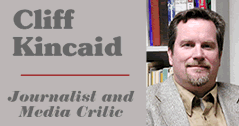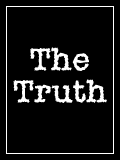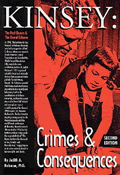Other
Kincaid
Articles:
By Cliff Kincaid
October
19, 2005
NewsWithViews.com
Judith Miller of the New York Times is one of the scheduled witnesses on Wednesday before another Senate hearing on a proposed federal media shield law. You can bet the television cameras will be there in force. The hearing has been orchestrated with selected witnesses in order to pave the way for the Senate to pass a bill giving special rights to journalists.
The first hearing, held on July 20 and also arranged by Senator Arlen Specter, chairman of the Senate Judiciary Committee, was stacked 9-1 in favor of proponents of the bill. Accuracy in Media was told we could not submit testimony in opposition to the legislation. AIM was contacted about appearing at this Wednesday�s hearing but was eventually told that Democratic staffers on the committee objected to having a conservative media watchdog organization providing testimony in person.
The performance of the press is even worse than that of the Specter committee. Liberal media bias is a fact of life. But when the issue involves the business of journalism, the bias gets so bad as to be deliberately dishonest.
Consider the slanted coverage of the July 20 Senate hearing. Washington Post media reporter Howard Kurtz wrote a story about the hearing that waited until the ninth paragraph to disclose that the Washington Post was one of the �news giants� supporting the bill. The Kurtz story was better than most, since he at least mentioned how his employer backed the shield law. We examined stories from CNN, CBS News, the New York Times and other outlets and found no reference to how these news organizations were all lobbying for passage of the legislative initiative.
The backers include some of the most powerful in the news business. In addition to those named above, they include News Corporation, Newsweek, Time Inc., the Tribune Co., NBC Universal, and ABC Inc.
Another problem with the coverage has been the failure to examine in detail the proposal�s major flaws. In his next to the last paragraph of his story, Kurtz noted that then-Deputy Attorney General James Comey�s written testimony to the Senate Judiciary Committee said the shield law measure, as originally drafted, �would cover criminal or terrorist organizations that also have media operations, including many foreign terrorist organizations, such as al Qaeda.�
The shield law was originally proposed by Rep. Mike Pence (R-Ind.) as the �Free Flow of Information Act of 2005,� or, as AIM has called it, the Special Rights for Journalists Act. On July 18, just two days before the Senate hearing, Pence introduced a revised version because the original had received such marked criticism from the Department of Justice.
Rep. Pence insisted that there has been an �alarming rise in the number of reporters being threatened with jail,� an obvious reference to the Judith Miller situation. She went to jail for a period of time rather than testify before a grand jury in the CIA leak case. AIM believes that if reporters have information relevant to a criminal or national security case, they should provide it.
Supporters of the bill say that 31 states have shield laws of their own and the result has not been disaster. But none of the states has to deal with classified information in the same manner as the federal government, nor are they charged with protecting the country as a whole.
The revised act notes that a �covered person� includes �a parent, subsidiary or affiliate of such a [newsgathering] entity. If a newspaper publishes through a subsidiary and a subpoena is directed to the parent company, for example, the parent company should be covered.� But this would not only cover an Al Qaeda media operation, it would cover the pro-terrorist media group Al-Jazeera, which operates in the U.S. and is now expanding its operations.
The bill only provides compelled testimony if �a crime has occurred.� What happens if a crime is about to occur? Terrorists sometimes alert media outlets before an attack to ensure that it receives maximum coverage. Despite the provision in the bill that allows for compelled disclosure if such is �necessary to prevent imminent and actual harm to national security,� the rest of the bill is sufficiently vague and contradictory to ensure that a legal battle would ensue, and by the time that the provisions of a shield law are dealt with in court, it might be too late. In the climate of terrorism, we are dealing with minutes and hours, not motions and briefs.
And what about bloggers? More and more Americans these days are getting their news from so-called �alternative� venues. With the very definition of �the media� under constant change, it appears foolhardy to set one group of �reporters� out from the rest. The Internet has given everyone the chance to be a reporter and to engage in the dissemination of ideas. In the face of such progress, now is not the time for the �mainstream media� to get special treatment.
|
Subscribe to the NewsWithViews Daily News Alerts! |
Rep.
Pence argues that �our founders believed that the only check on government
power in real time is a free and independent press.� Not exactly.
Our founders believed that the most powerful check on government power
would be an active and engaged citizenry with the right to print and
publish. This is why freedom of the press is within the context of
the first amendment in its entirety. Is it conceivable that our founders
decided to bestow freedom of speech/assembly/religion on all of us
but that a freedom of the press was reserved only for those on a newspaper
payroll? What is it about a press card that makes a working reporter
somehow stand above the rest of us? Why should every single American,
including the president and vice president, be obliged to give testimony
in a criminal investigation but only reporters can pick and choose
if they will do so?
� 2005 Cliff Kincaid - All Rights
Reserved
Cliff Kincaid, a veteran journalist and media critic, Cliff concentrated in journalism and communications at the University of Toledo, where he graduated with a Bachelor of Arts degree.
Cliff has written or co-authored nine books on media and cultural affairs and foreign policy issues.
Cliff has appeared on Hannity & Colmes, The O�Reilly
Factor, Crossfire and has been published in the Washington Post, Washington
Times, Chronicles, Human Events and Insight.
Web Site: www.AIM.org
E-Mail: kincaid@comcast.net
The performance of the press is even worse than that of the Specter committee. Liberal media bias is a fact of life. But when the issue involves the business of journalism, the bias gets so bad as to be deliberately dishonest.












